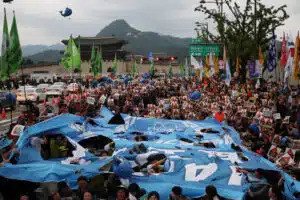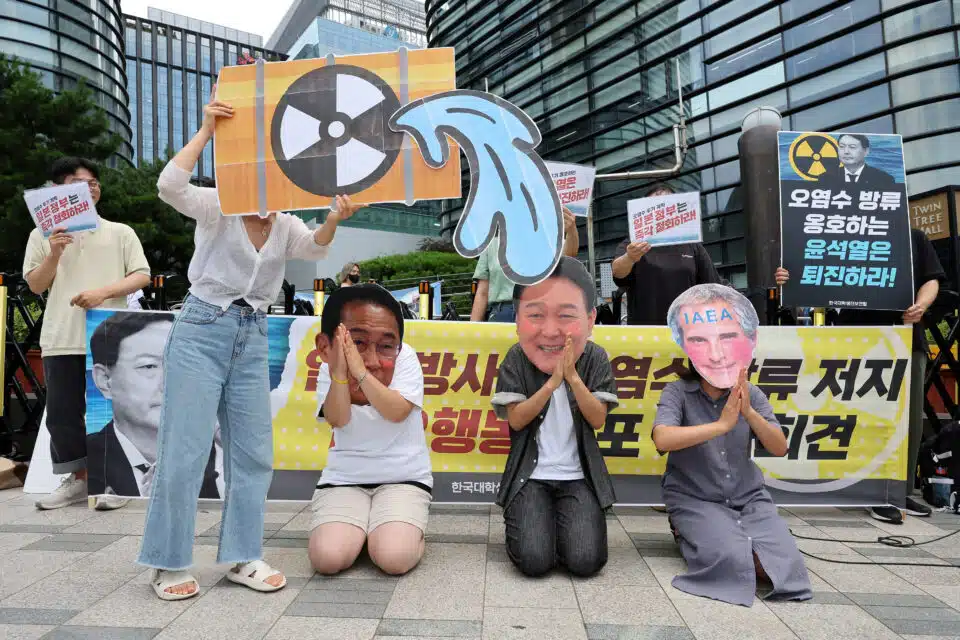SEOUL, July 10 — Hundreds of protesters took to the streets of Seoul on Saturday (July 8) during a visit to South Korea by the head of the United Nations (UN) nuclear watchdog, aimed at calming fears over Japan’s plan to discharge treated radioactive water from its tsunami-hit Fukushima plant.
Rafael Grossi, director general of the International Atomic Energy Agency (IAEA), arrived in the capital on Friday (July 7) to meet the foreign minister and a top nuclear safety official, during his three-day visit after wrapping up a trip to Japan.
Foreign Minister Park Jin told Grossi Seoul’s consistent position is that contaminated water should be verified for safety and treated in a manner that complies with international law and standards, the ministry said in a statement.
Park also asked the agency for help in verifying safety and reassuring the public.
Earlier in the week, the IAEA said a two-year review has indicated Japan’s plans for the water release would have a negligible impact on the environment.
South Korea’s government has said it respected the IAEA’s report and that its own analysis had found the release will not have ;any meaningful impact; on its waters.

Hundreds of people including children and members of the Korean Confederation of Trade Unions took to the streets on Saturday to protest the discharge plan, some carrying banners and blue balloons in the shape of whales.
“It makes little sense to argue that the release is okay because it does not harm humans. Animals also live in the ocean,” said university student Kim Han-bi.
No expert behind the IAEA’s Fukushima report disagreed with the content, Grossi told news agency Yonhap on Saturday, hinting at his comment during an interview with Reuters one day earlier that one or two team members may have expressed concerns.
On Sunday, Grossi is set to meet members of the opposition Democratic Party of Korea which has been critical of the Japanese plan.
The administration of President Yoo Suk Yeol has walked a fine line in its stance on Japan’s discharge proposal, as it tries to improve ties with Tokyo. But the plan has stirred anger and concern among South Koreans, prompting some shoppers to buy up sea salt.
Despite South Korea’s assent to the plan, a ban on food and seafood products from the Fukushima region will remain in place.
— Reuters






